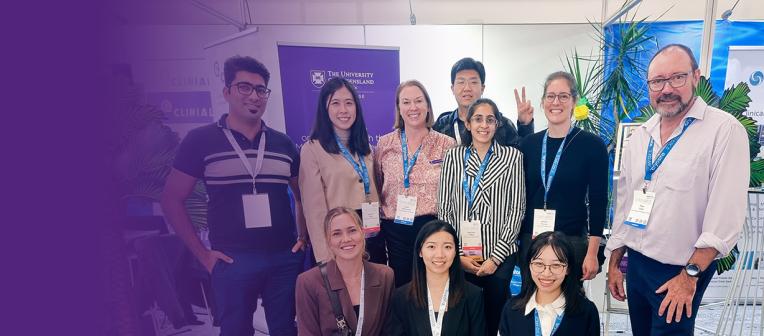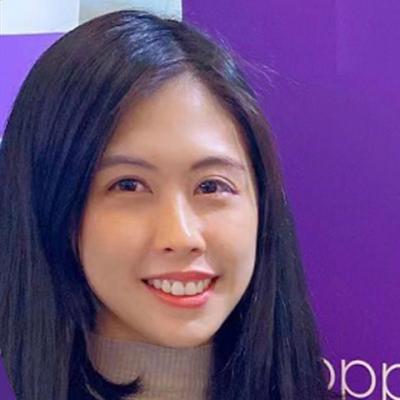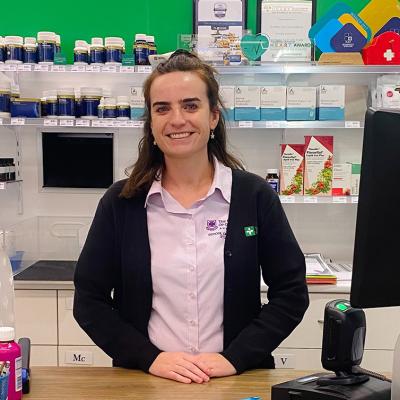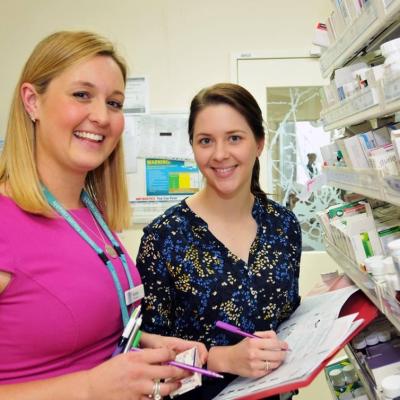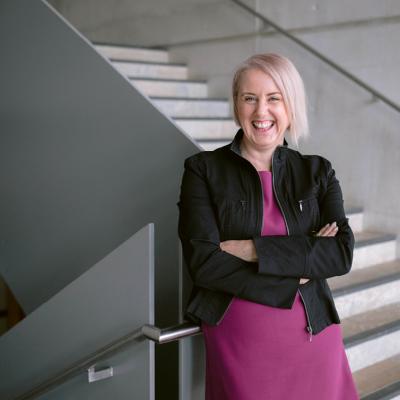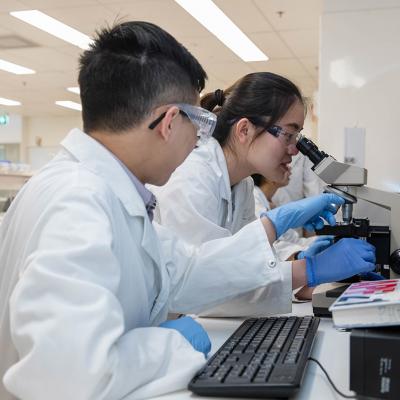Have you been asking yourself, “How do I get a job in the pharmaceutical industry?”
For students Ying Hui, Chengxi and Synnøve, the simple answer is: by doing a Master of Pharmaceutical Industry Practice (MPharmIndPrac) at The University of Queensland.
But let's learn a little more about their experience with the MPharmIndPrac and how it's preparing them for a successful career in the pharmaceutical industry.
The program – now in its third year – has been attracting students with the hope of learning more about the high-performing medicines and devices development sector. With a broad range of potential career choices available, the MPharmIndPrac is appealing to those with a range of experiences and varied study backgrounds and interests. Through a mix of coursework specific to the sector, organised industry placements and research pathways, MPharmIndPrac students receive a firsthand experience of what a career in this field is really like.
Hear from three current MPharmIndPrac students about their experiences with the program, their industry placements, and representing the UQ School of Pharmacy and Pharmaceutical Sciences at an industry conference in Sydney.
What made you want to study the MPharmIndPrac?
Ying Hui Fung: An interest in medicine, a passion for science, and the pursuit of better healthcare for everyone. I have been searching for a career related to healthcare, but not in a hospital or clinical setting, and the MPharmIndPrac provides me with an insight into the overall industry.
Chengxi Zhang: I started with a pharmacology background and would like to end up with a career where I can see that drugs really benefit people. Also, I wanted to gain some industrial experience before graduating. As the MPharmIndPrac includes a 1-year placement opportunity within the 2-year master’s program, I feel like this was a great match for my career pathway.
Synnøve Aamold: Being a qualified pharmacist, I was interested to explore more of the pharmaceutical industry and the opportunities within this field. The MPharmIndPrac allows me to obtain the necessary skills and gain experience to transition successfully from student to working in the industry.
What is your dream career in the pharmaceutical industry?
Synnøve Aamold: I want to pursue a career within the clinical trials field. As I have been exposed to this field through my placement, I really enjoy the workplace and the presenting opportunities. I am currently motivated to become a clinical trials coordinator or a clinical research associate.
Ying Hui Fung: Potentially a clinical research associate or a role in project management.
Chengxi Zhang: At the current stage, I would like to start my career as a clinical research associate and maybe end up as a project manager.
Why did you choose the pharmaceutical industry as a career?
Synnøve Aamold: I chose pharmacy as I have an interest in chemistry, biology and wanting to contribute to better health for humans through my strengths and interests. I further chose clinical research as this is a field where I can be a part of new research and latest interventions, hopefully making people’s quality of life better.
Chengxi Zhang: I would like to see how drugs can really benefit people, so I have chosen to be involved in clinical trials as a career.
Ying Hui Fung: Technically it is a career within the clinical trials space that I’m seeking, but I appreciate how both positively drive healthcare forward.
Is the pharmaceutical industry a good career in Australia?
Synnøve Aamold: There are different career pathways to choose, depending on your interests. Overall, it is a great profession, as there is a demand for staff working in industry, government, and other sectors. I would say the MPharmIndPrac is a strong degree with a lot of career options, so my answer to this question would be yes.
Chengxi Zhang: I’m still at the placement stage, but I think it is a good career to start as a clinical research associate, with nice working environments, supportive team members, a high sense of achievement and relatively high salaries.
Has the MPharmIndPrac helped you narrow down the area of the pharmaceutical industry you’re interested in?
Ying Hui Fung: Yes, absolutely. I’ve now got a much clearer picture of the overall industry, and by understanding which positions are involved in which phases of the drug development process, I’m on my way to figuring out my calling.
Chengxi Zhang: Yes. Based on the placement experience, I’m sure that I’m interested in the area of clinical trials. And we also have final presentations at the end of each semester to share our experience and hear from our peers, which helps us to decide if the other areas would be more interesting to us.
Synnøve Aamold: Yes, indeed it has. The theoretical subjects in the first year of this program have helped me choose the right career path and determine what kind of placement I should seek. Further, the placement is a valuable insight into the work tasks on a daily basis, and I have grown to like my placement very much.
How do you get a job in the pharmaceutical industry?
Synnøve Aamold: Of my understanding, a lot of the job positions in the pharmaceutical industry are internally advertised. This means connections in the industry are important, and this program is tailored for this particular purpose.
Ying Hui Fung: I took the initiative to offer help to different people during my placement and to always be open-minded in learning, and I guess that leaves a positive impression on the host organisation.
Chengxi Zhang: Complete the MPharmIndPrac program, be equipped with a year’s worth of placement experience, then start to send millions of CVs, conduct millions of interviews, and you will finally get a job.
The second year of the Master of Pharmaceutical Industry Practice provides flexible pathways. Students can choose to complete a combination of up to two full-time industry placements, up to two supervised research projects, or further coursework.
What have you gained from your placements?
Synnøve Aamold: Firstly, I have managed to establish a solid network through my placement, connecting with different people with different skillsets. Secondly, I have improved my skills as well as learned new ones, being surrounded by an amazing team supporting me through the placement.
Chengxi Zhang: I have definitely gained some professional knowledge about the industry, as well as practised various employability skills such as teamwork, communication, multi-tasking and problem solving, which all build my confidence to step into the industry after graduation.
How has the School/program assisted with your placements?
Synnøve Aamold: The staff have been incredible, managing to secure exciting placement opportunities and supporting us through the semesters. We have been prepared for getting work-ready for the placements at an early stage, with employability workshops running every semester.
The theory in the first year of the program is thoroughly tailored to having enough knowledge of which career path and placement we want to choose.
The staff have also supported us by being available through different communication channels such as email and one-on-one consultations for improving our CVs, cover letters and preparing for interviews.
Chengxi Zhang: The master’s program provides a list of placements for us to choose from and a series of workshops to help us build our LinkedIn profile, prepare our CV and cover letter, and give interview tips to make us become more professional before getting the placement offer.
After confirming the placement positions, we have access to placement-ready workshops to help us know about the basic office rules, dress code, how to behave professionally and how to protect us from being improperly treated.
How has the program helped you to feel more equipped to enter the pharmaceutical industry?
Synnøve Aamold: Being thoroughly drilled in practising different employability skills, I have learned more about myself and how I work, as well as what I need to practise to conquer my dream job.
Chengxi Zhang: The placement experience has equipped me with nearly one year of work experience within a clinical trials setting, so I will be more confident and competitive when it comes time for full-time job offers after graduation.
Ying Hui Fung: Having more confidence in acing interviews, resulting in job offers after gaining hands-on experience from placements.
Is this a difficult field to study?
Synnøve Aamold: It would really depend on your interest in this particular field. Holding a master’s degree in pharmacy before commencing this program, it has not been difficult for me to study the MPharmIndPrac and its related subjects. I already have an understanding of pharmaceuticals, pharmacology and how the pharmaceutical industry works. If you enjoy this field and find it interesting, I do not think you will find it difficult to study.
Chengxi Zhang: From my perspective, it is not as hard as studying pharmacology, as we are not only learning about the drug mechanisms, but also some drug regulation aspects, which might be more closely related to life and can be easily understood.
Ying Hui Fung: I have a special interest in chemistry, and that set me a good foundation for learning in this area. Passion is key!
How has the MPharmIndPrac accelerated your career in the MTP (Medical Technologies and Pharmaceuticals) sector?
Synnøve Aamold: Firstly, I would say the placement opportunities. Choosing a placement is an excellent approach to connect with people in the industry, especially within the field I am more interested in. Knowing people is valuable.
Ying Hui Fung: It gave me exposure to Australian clinical trials and helped me to establish a professional network, which would otherwise be harder for a fresh graduate coming from overseas.
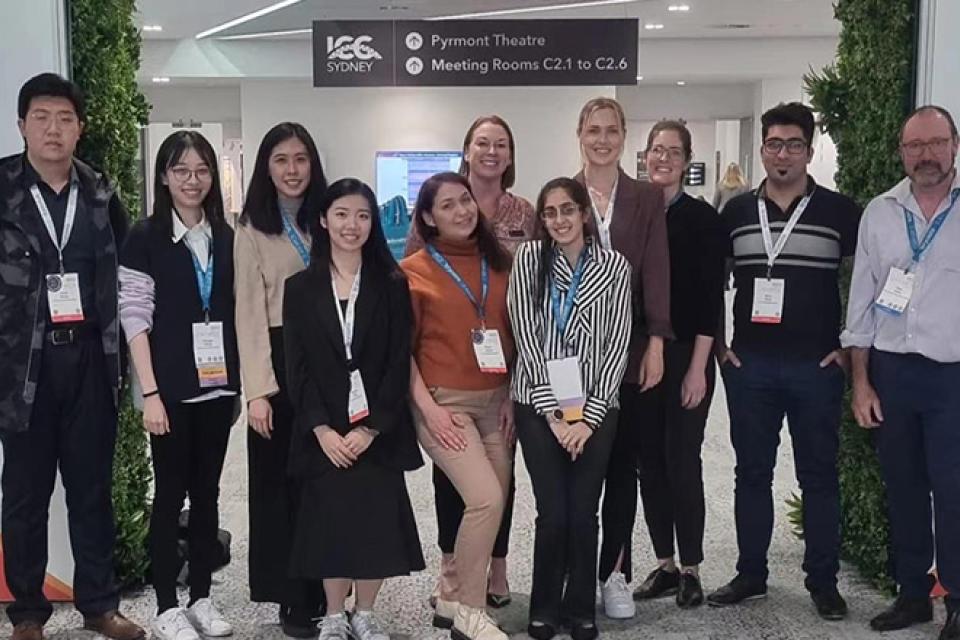
In May 2022, staff and students from UQ’s MPharmIndPrac program travelled to Sydney to attend the 2022 ARCS Annual Conference and represent the School of Pharmacy and Pharmaceutical Sciences. The conference was an opportunity for industry professionals, consumers, patients, practitioners, researchers and academics to come together, network, and discuss their current work.
What did you gain from your experience at the Association of Regulatory and Clinical Scientists (ARCS) Annual Conference?
Synnøve Aamold: ARCS was a fantastic opportunity to meet and connect with people working in the clinical research industry. I got to practice my networking skills and see what job opportunities are available in the field.
Ying Hui Fung: Stronger bonding among the MPharmIndPrac students and staff, and a broader awareness of the career pathways and options available after graduation.
Chengxi Zhang: The ARCS Annual Conference was a great opportunity for us to get a general picture of the industry and insight into the different companies, and to reach out to a lot of people with various kinds of careers.
It was a really great opportunity for every attending student involved in the MTP sector to broaden their vision and get connected with senior colleagues. I was grateful that I could be involved in this event even before the start of my career, and I would definitely recommend to everyone that they attend the ARCS Annual Conference at any stage of their career.
The industry is changing rapidly, with new technologies and companies emerging. It’s never a bad thing to get exposure to the latest updates about the industry and to meet different people with brilliant ideas and talents.
As a first timer, it was exciting to reach out to different groups of people and companies, to get to know more about the industry, and to expand my network.

